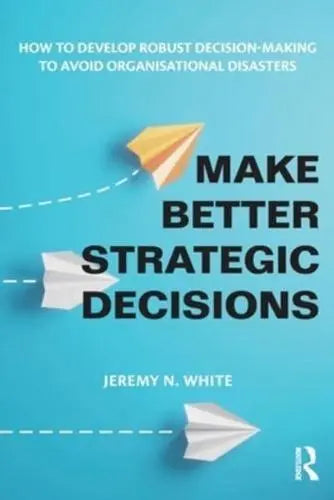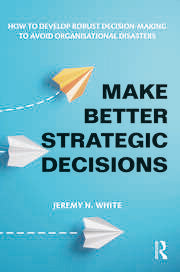

Make Better Strategic Decisions
Publisher,Routledge
Publication Date,
Format, Paperback
Weight, 318 g
No. of Pages, 200
Shelf: Professional Books / Business & Management / Strategic Management
Kindly ask our staff if you cannot locate the shelf.
Every day we hear of serious errors of judgement that result in organisational disaster. Why do seemingly successful businesses, NGOs, or even political parties fall prey to irrevocable governance breakdowns or, worse still, criminal malpractice? By prompting readers to think deeply about strategic decision-making, human behaviour, and cognitive biases, this book offers a disciplined, objective, and thoughtful approach to making better decisions.
Every strategic problem is fundamentally a journey into the unknown, which involves a unique combination of duration, scale, external and internal dynamics, and personal motivations. Rarely is a strategic decision solved by saying, ‘If a situation is A, then the solution is B.’ The book explores how to develop a strong foundation for problem resolving – rather than simplistic problem-solving – by strengthening competence so that decisions are made wisely. The case of Carillion plc, the second-largest construction group in the United Kingdom that went bankrupt in January 2018, is used to explore how a large and profitable company collapsed so dramatically when it was run by an experienced board and advised by three of the Big Four accounting firms. Professor Jeremy N. White presents a clear strategic toolkit for better strategic decision-making.
This book will appeal to senior managers who are interested in techniques for making better strategic decisions. The lessons from the failure of Carillion plc are applicable to corporate leaders in addition to politicians and those who run not-for-profit organisations.
Table of Contents
Introduction 1. Core Questions 2. Strategic Thinking 3. Carillion plc 4. Behavioural Management 5. Risk 6. Strategy as Paradox 7. Moral and Ethical Issues 8. Corporate Governance 9. Strategic Toolkit 10. Strategic Toolkit: Additional Perspectives

